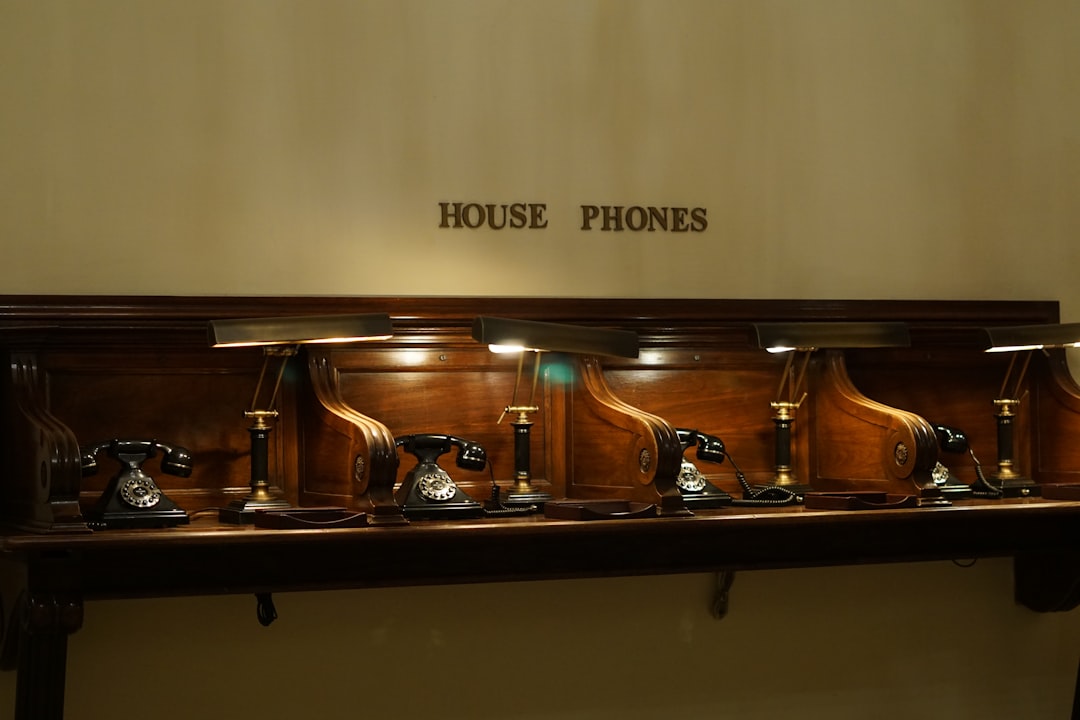Laurel businesses must stay vigilant against phone scams targeting customer data security. Scammers employ automated dialers, fake numbers, and impersonation. Staff training, understanding local laws like Maryland's Telephone Consumer Protection Act (TCPA), and engaging a specialized lawyer are crucial defenses. Proactive measures include robust security, multi-factor authentication, and clear data handling policies to protect sensitive information. Consulting a TCPA Maryland lawyer offers guidance on caller ID, marketing consent, and compliance, safeguarding businesses from legal repercussions and maintaining customer trust.
Laurel businesses must stay vigilant against phone scammers targeting their customers. Phone scams, often facilitated by automated calls, aim to steal sensitive data or extort money. Maryland’s Telephone Consumer Protection Act (TCPA) offers protections, but businesses must proactively safeguard customer information. This article guides Laurel companies through understanding common scams, identifying red flags, implementing best practices, and addressing legal implications, including the role of a lawyer specializing in TCPA Maryland laws. By following these steps, businesses can fortify their defenses against phone scammers.
Understanding Phone Scams and the TCPA in Maryland

Phone scams, a growing concern in Maryland and across the nation, involve fraudsters using telephone calls to deceive individuals and businesses into providing sensitive information or paying money. These scams can take various forms, including impostor calls, robocalls, and fraudulent offers. The Telemarketing and Consumer Protection Act (TCPA) is a federal law designed to protect consumers from such deceptive practices. In Maryland, the TCPA is enforced by the Attorney General’s Office, which actively pursues legal action against violators.
Businesses in Laurel, Maryland, must be aware of their responsibilities under the TCPA to safeguard customer data and avoid legal repercussions. This includes obtaining explicit consent before making automated or prerecorded calls, providing a clear and understandable opt-out mechanism during marketing calls, and adhering to restrictions on certain types of phone marketing activities. Seeking guidance from an experienced lawyer for TCPA Maryland can help businesses navigate these regulations effectively and ensure they are protected against potential scams and legal disputes.
Identifying Red Flags: Spotting Suspicious Calls

Laurel businesses must stay vigilant in recognizing and reporting phone scams, as they can compromise sensitive customer data. One of the first steps is to identify red flags that indicate a suspicious call. Scammers often use automated dialers or fake numbers to make bulk calls, targeting random individuals. They may also pose as legitimate organizations or offer too-good-to-be-true deals to trick recipients into providing personal information. Businesses should train their staff to recognize these tactics and report any unusual calls to the appropriate authorities.
Additionally, staying informed about local laws, such as the Telephone Consumer Protection Act (TCPA) in Maryland, is crucial. A lawyer specializing in TCPA cases can help businesses understand their rights and responsibilities regarding caller ID, pre-recorded messages, and consent for marketing purposes. By being proactive and keeping up with legal guidelines, Laurel businesses can better protect themselves and their customers from phone scammers.
Safeguarding Customer Data: Best Practices for Businesses

Laurel businesses must take proactive steps to safeguard customer data from phone scammers, especially with the constant evolution of fraud techniques. One of the primary goals is to prevent unauthorized access and ensure the security of sensitive information. Implementing robust security measures like encryption for data storage and transmission, regular staff training on cybersecurity best practices, and multi-factor authentication can significantly reduce the risk of data breaches.
Moreover, businesses should establish clear policies regarding customer data handling and retention. Regularly reviewing and updating these policies, especially in light of changing regulations (like the TCPA in Maryland), is essential. Engaging a lawyer specializing in TCPA compliance in Maryland can provide valuable guidance on navigating these legal requirements, ensuring that your business handles customer data responsibly and stays protected against potential legal repercussions.
Legal Implications: What to Expect if Scammed or Caught Unprepared

In Maryland, the Telephone Consumer Protection Act (TCPA) governs how businesses can contact consumers by phone. Violations of this act can lead to significant legal repercussions for Laurel businesses. If a business is scammed or caught unprepared, it could face substantial fines and damage to its reputation. A lawyer specializing in TCPA Maryland can help protect businesses from these consequences by ensuring compliance with the law. They can provide guidance on best practices for handling customer data and preventing fraudulent calls, which are crucial steps to avoid legal issues and maintain consumer trust.
In case of a breach, a lawyer can offer immediate assistance. They can help investigate the incident, assess liability, and take appropriate legal action against the culprits. This proactive approach not only mitigates financial losses but also demonstrates a commitment to data security, which is essential for maintaining customer loyalty.
Resources and Next Steps: Protecting Your Business and Customers

Laurel businesses should prioritize data protection as a top priority, especially with the ever-evolving landscape of phone scams. One of the first steps is to educate employees on recognizing and responding to suspicious calls, including training them on the latest scamming tactics. Implementing robust security protocols and using encryption for sensitive data can significantly deter potential attackers.
Additionally, businesses should consider legal counsel from a lawyer specializing in TCPA (Telecommunications Consumer Protection Act) Maryland. These experts can guide companies on adhering to federal regulations regarding caller ID, automatic dialing systems, and prerecorded messages, which are common targets for scammers. Regular security audits and staying updated with industry best practices will ensure your business remains one step ahead of these nefarious activities, safeguarding customer data effectively.






